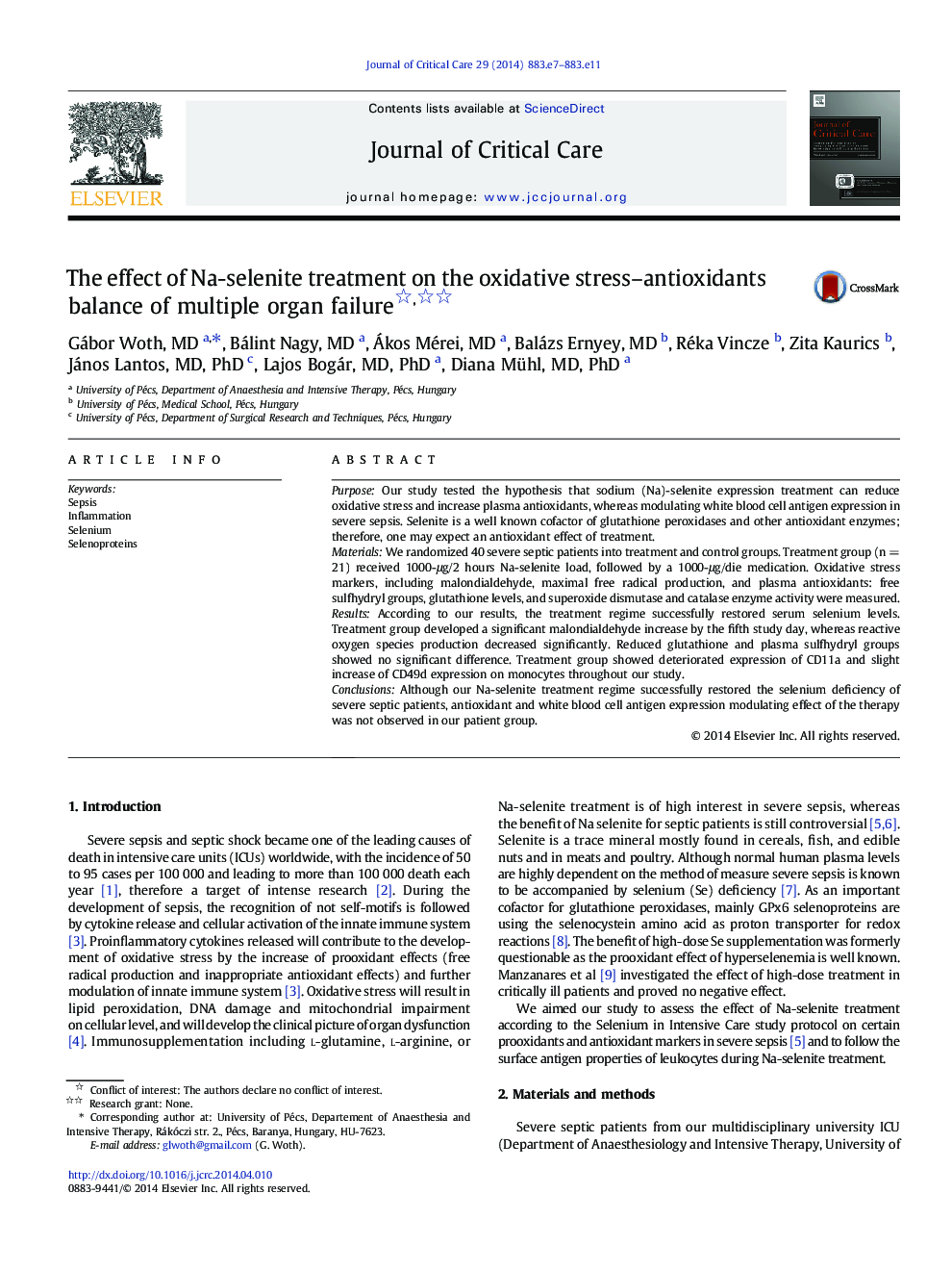| Article ID | Journal | Published Year | Pages | File Type |
|---|---|---|---|---|
| 5886046 | Journal of Critical Care | 2014 | 5 Pages |
PurposeOur study tested the hypothesis that sodium (Na)-selenite expression treatment can reduce oxidative stress and increase plasma antioxidants, whereas modulating white blood cell antigen expression in severe sepsis. Selenite is a well known cofactor of glutathione peroxidases and other antioxidant enzymes; therefore, one may expect an antioxidant effect of treatment.MaterialsWe randomized 40 severe septic patients into treatment and control groups. Treatment group (n = 21) received 1000-μg/2 hours Na-selenite load, followed by a 1000-μg/die medication. Oxidative stress markers, including malondialdehyde, maximal free radical production, and plasma antioxidants: free sulfhydryl groups, glutathione levels, and superoxide dismutase and catalase enzyme activity were measured.ResultsAccording to our results, the treatment regime successfully restored serum selenium levels. Treatment group developed a significant malondialdehyde increase by the fifth study day, whereas reactive oxygen species production decreased significantly. Reduced glutathione and plasma sulfhydryl groups showed no significant difference. Treatment group showed deteriorated expression of CD11a and slight increase of CD49d expression on monocytes throughout our study.ConclusionsAlthough our Na-selenite treatment regime successfully restored the selenium deficiency of severe septic patients, antioxidant and white blood cell antigen expression modulating effect of the therapy was not observed in our patient group.
